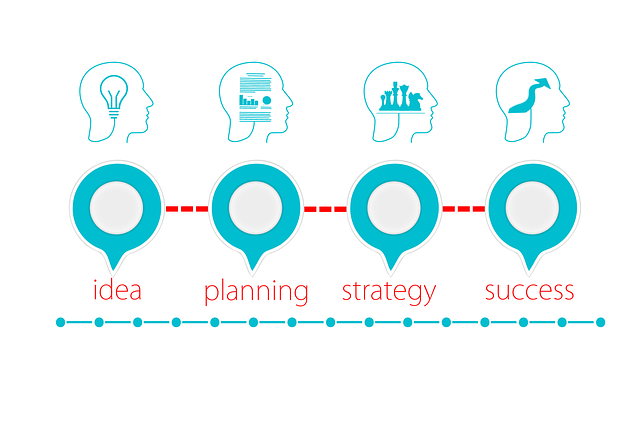In the UK healthcare industry, accurate translations of physician treatment plans are vital for patient safety and outcomes. The best translation services for Physician's Treatment Plans UK employ professional medical translators with expertise in both languages, ensuring cultural adaptability and clinical integrity. Quality assurance checks, including back-translation and independent proofreading, verify accuracy and efficacy. Strict data confidentiality protocols, GDPR compliance, and the use of qualified medical linguists are non-negotiable to prevent misinterpretation and harm. This ensures effective communication, patient safety, and optimal treatment outcomes in diverse healthcare settings.
Ensuring accuracy in treatment plan translations is paramount in healthcare, especially with increasing global patient populations. This article explores critical aspects of precise translation for physician’s treatment plans in the UK, highlighting the significance of language services that meet stringent medical terminology and cultural nuances. We delve into selecting reputable translation providers, implementing rigorous quality assurance processes, and safeguarding patient safety and confidentiality throughout the translation workflow.
- Understanding the Importance of Accurate Treatment Plan Translations
- Selecting Reliable Translation Services for Medical Documentation
- Quality Assurance Processes in Physician Treatment Plan Translations
- Maintaining Patient Safety and Confidentiality during Translation Procedures
Understanding the Importance of Accurate Treatment Plan Translations

In the healthcare sector, accurate translations are paramount, especially when it comes to treatment plans. When a physician creates a detailed plan for a patient’s care, ensuring that this information is clearly and correctly conveyed in another language is vital. Translation services for Physician’s Treatment Plans UK play a critical role here. An incorrect translation could lead to misdiagnosis or inappropriate treatment, impacting patient safety and outcomes.
Therefore, when translating treatment plans, it’s not just about changing words from one language to another; it’s about preserving the medical integrity of the document. This involves employing professional translators with medical expertise who understand both the source and target languages and are adept at navigating complex medical terminology. The process should also include quality assurance checks to verify accuracy and cultural adaptability, ensuring that the translated plan is understandable and applicable in the recipient country’s healthcare context.
Selecting Reliable Translation Services for Medical Documentation

Selecting reliable translation services is paramount when it comes to accurately translating physician’s treatment plans in the UK, especially given the high stakes involved in healthcare communication. It’s crucial to look for providers with expertise in medical terminology and an understanding of local healthcare systems to ensure precise translations that adhere to clinical standards. Reputable translation companies will employ professional translators who are native speakers, possess medical qualifications, and undergo ongoing training to stay updated with industry jargon and best practices.
When choosing a translation service for physician’s treatment plans, verify their credentials, experience, and client testimonials. Look for certifications like ISO 17100 or 9001, which guarantee quality management systems. Additionally, request samples of their previous work in medical translations to assess the level of accuracy and fluency they offer. Engaging a reliable translation service not only safeguards patient safety but also facilitates effective communication between healthcare providers and patients, ensuring the best possible treatment outcomes.
Quality Assurance Processes in Physician Treatment Plan Translations

Ensuring accuracy in translations of physician treatment plans is paramount, especially with the increasing global mobility of patients and diverse healthcare settings. In the UK, where multilingual patient populations are growing, translation services for Physician’s Treatment Plans must adhere to stringent quality assurance processes. These involve multiple checks and balances designed to preserve medical accuracy, clarity, and efficacy.
First, professional translators with expertise in both language and medical terminology are vetted and selected. They follow standardized procedures, including back-translation by native speakers not involved in the original draft, to ensure fidelity to the source document. Additionally, proofreaders independently verify the translated plan, cross-referencing it against the original for any discrepancies. This rigorous process ensures that treatment instructions, potential side effects, and dosages are conveyed precisely, minimizing risks and enhancing patient safety.
Maintaining Patient Safety and Confidentiality during Translation Procedures

Maintaining patient safety and confidentiality is paramount when translating physician treatment plans, especially in the UK where strict data protection regulations are in place. Accurate translations must be more than just word-for-word substitutions; they require a deep understanding of medical terminology and cultural nuances to avoid potential harm or misinterpretation.
Translation services for Physician’s Treatment Plans UK should employ qualified linguists with expertise in medicine who can ensure the translated documents accurately convey the intended clinical information. Secure data handling procedures are essential, including encrypted communication channels, secure storage, and strict adherence to data privacy laws like GDPR. This safeguards patient confidentiality while facilitating precise and reliable translations vital for effective healthcare delivery.
Ensuring accuracy in treatment plan translations is paramount in the UK healthcare sector, especially when utilizing translation services for physicians’ treatment plans. By selecting reliable providers and implementing robust quality assurance processes, medical professionals can maintain patient safety and confidentiality. It’s crucial to prioritize precision and compliance with industry standards to deliver effective, culturally sensitive care across diverse linguistic settings. Choosing the right translation services is a strategic move that can enhance patient outcomes and overall healthcare delivery.
